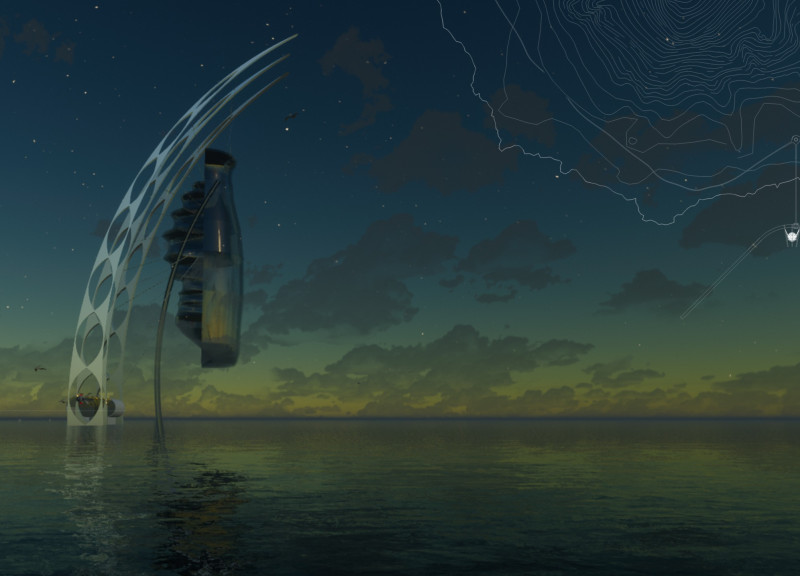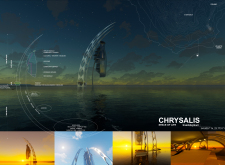5 key facts about this project
The project located in Snæfellsjökull, Iceland, creates a sustainable community that integrates various functions and spaces. It emphasizes environmental awareness and encourages community interaction. Green transport solutions, cultural facilities, and health services are all part of the design, which seeks to enhance the quality of life for residents.
Community Hub
At the center of the design is a HUB that serves as the main gathering area. This space promotes social interaction and hosts various community activities. The nearby Community Council is an essential part of this concept, providing residents with a platform to voice their opinions and participate in decision-making processes.
Cultural and Recreational Spaces
The design includes a Cultural - Theater - Museum space that supports artistic expression. This area allows residents to engage with culture and partake in events that strengthen their sense of belonging. By focusing on shared experiences, it contributes to the overall character of the community.
Sustainability Features
Sustainability is a key aspect of the project. A Clean Energy Vehicles Tunnel enables non-polluting transportation, while Parking for Clean Energy Vehicles supports eco-friendly choices. Waste management is also thoughtfully addressed, with facilities for Recycling, Composting, and Waste-to-Energy initiatives that aim to minimize environmental impact.
Health and Wellbeing
Access to Health Services is strategically incorporated, ensuring that medical care is available to all. Additionally, agricultural and livestock areas highlight the importance of self-sufficiency, fostering local food systems that connect residents to sustainable practices.
The Sea Module adds another layer to the community's design. It connects inhabitants to the surrounding marine environment, creating opportunities for recreation and education about local ecosystems. This integration enhances relationships between people and nature, reflecting a broader vision of harmony within the community.



















































